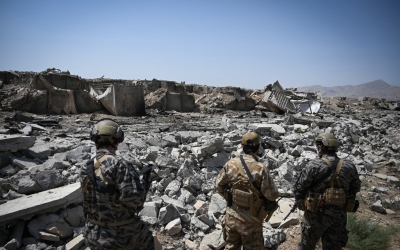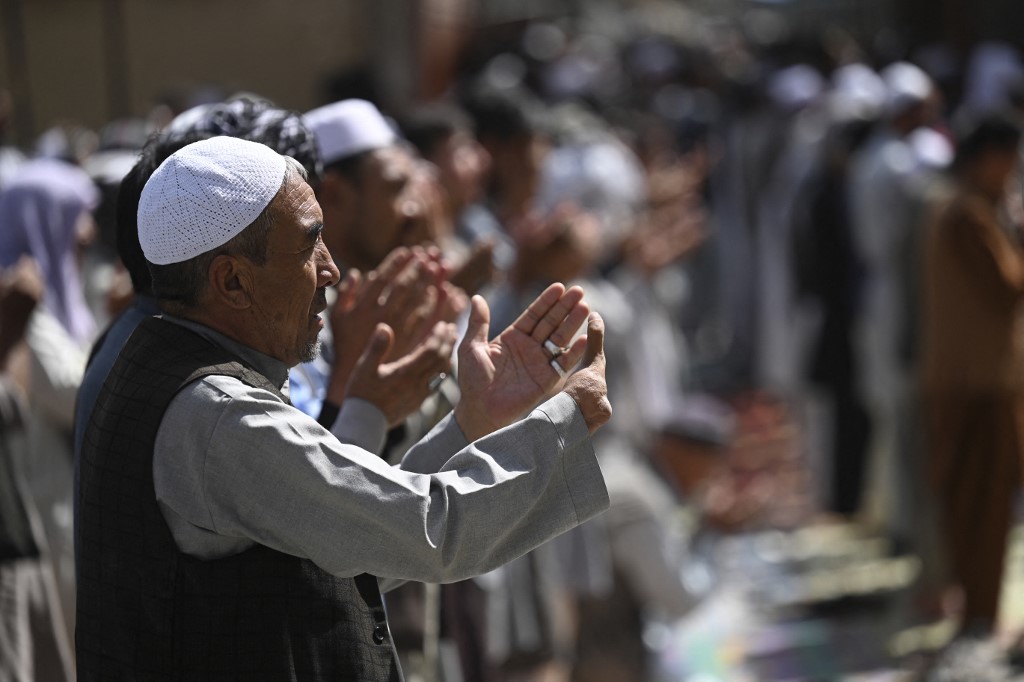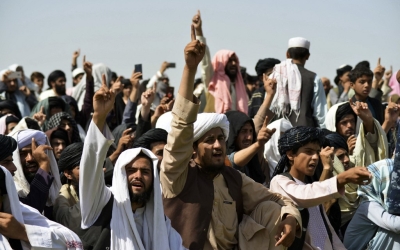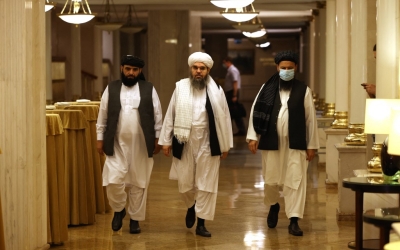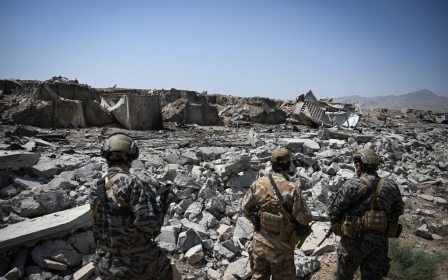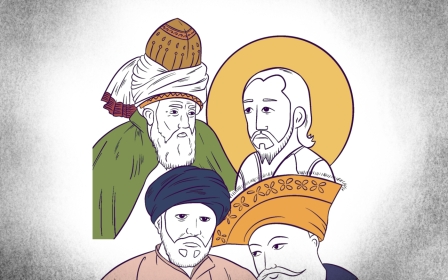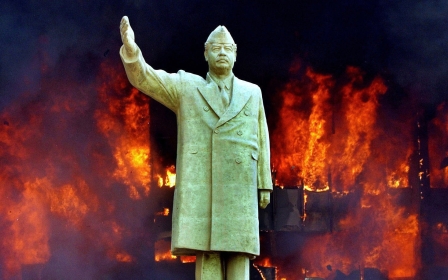Nation-building in Afghanistan: What the Taliban must do next
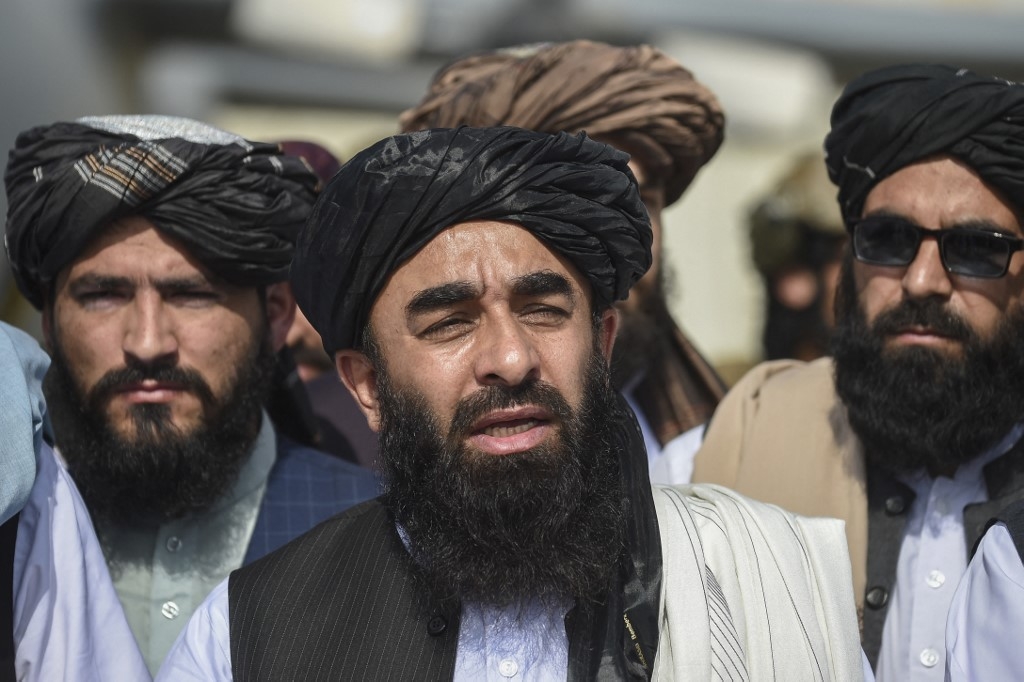
On 15 August 2021, the Taliban seized control of the presidential palace in Kabul, marking the second time the capital of Afghanistan had fallen to the militant movement.
Afghanistan is now at a juncture where nation-building is critical and inevitable, where a national identity needs to be forged from a diverse population. Nation-building take place at an advanced stage: the capacity of state institutions must be maximised, alongside the fostering of relations between the state and society.
This is crucial in the aftermath of a war. The people of a nation need to be unified through the utilisation of state powers, which in turn ensure longterm political stability and viability, thus legitimising the authority of the government.
Imposing religiosity over people will not suffice in the long run. The experience of Iran and Saudi Arabia is proof
Afghanistan is mired in complications. The decades-long conflict has witnessed superpowers try and fail to impose their will on the territory. The Afghan war earned the nation the title of a failed state, broke the Soviet Union’s backbone and almost drained the United States dry. The country then fell into the hands of the Taliban at an unprecedented speed.
In the 90s, it took the Taliban two years of heavy fighting to capture Afghanistan; it needed less than a week in 2021 to do the same. Call it a failure of policy or leadership - either way, a non-state actor, the Taliban, is deciding the course of Afghanistan.
Hurdles
After being away from the political system for decades, an array of challenges lie ahead for the militant group. These hurdles include internal and external strife, as well as regional complications and interference by global powers with diverse interests.
A coup or power struggle by militias led by warlords in the east, west and north of Afghanistan, such as Ata Mohammad Noor and Abdul Rashid Dostum in Mazar-e-Sharif, and Ismail Khan in Herat, is possible. Their military acumen and anti-Taliban sentiment is well-known. While the Taliban seems to have made amends with Khan, the other two have reportedly fled to Uzbekistan, indicating that the Taliban’s tactical deals with previously pro-Ghani militias need bolstering.
The Taliban may have successfully consolidated power. To secure and maintain power, nation-building must be acknowledged and acted upon. This will provide legitimacy and garner international recognition, although certain steps must be followed.
First, and very importantly, role change. The Taliban is no longer considered a non-state actor, the opposition or an outsider to the political system. The Taliban is now leading Afghanistan. Thus, the government must be a representation of Afghanistan in its entirety, without the exclusion of any. Institutions such as the government and military must be constructed mindfully.
Second, imposing religiosity over people will not suffice in the long run. The experience of Iran and Saudi Arabia is proof. To build a collective national identity, the diversity of society must be considered. Only through the inclusion of people from different sects and cultural backgrounds can it be achieved.
Although the Muslim population is the single largest majority, constituting 99.7 percent of the population, there still exist small residual communities of those following other faiths, including Christianity, Hinduism, Baha'i and Sikhism. The two main variations of Islam, which are the Shia population (10-15 percent) and the Sunni population (85-89 percent), are prevalent in Afghanistan.
Ethnic inclusion
In Afghan societies, ethnicity determines the sect of Islam that is followed. While the majority of Pashtuns (except Pashtun Turi), Uzbeks and Tajiks (except Badakhshan Tajik) are Sunni, the Hazaras (one of the most marginalised and persecuted minorities of Afghanistan, especially by the Taliban) form Afghanistan’s largest Shia population. Hazaras constitute the largest proportion of victims of ethno-religious terror.
Moreover, sectarian tensions and violence have led to the outward migration of non-Muslims and Muslim minorities. Thus, an attempt at ethnic inclusion is vital, and will unify the internal front and achieve nation-building, which in turn will offer stability and security to the state and region.
Third, sensitivity to regional dynamics. The importance of Afghanistan to various players, whether for economic, geopolitical or security reasons, is significant. The Taliban will have to carefully cruise through the regional players' aspirations regarding the Afghan political system, notably Pakistan, India, China and Russia.
While Pakistan has been a staunch supporter of the militant movement, India was backing the former Ghani government. China and Russia were among the first countries to welcome the new Taliban administration. China has immense investments in the region as part of the Belt and Road Initiative (BRI) and the China-Pakistan Economic Corridor (CPEC). Russia too has regional economic interests and would want to regain its once-lost Central Asian footprint in a resource hub such as Afghanistan.
Such multi-modal interests will facilitate open engagement with the Taliban. Although the group may view this as external interference, such engagements are necessary in the context of security in the modern world. A working relationship between the Taliban and Afghanistan’s neighbours will ensure regional and global stability, while furthering the nation’s demands and needs in local, regional and global arenas. For this purpose, the Taliban must be flexible in its approach to foreign policy.
Fourth, the creation of a platform for opportunity. Afghanistan presently has the opportunity to become stable and assert a positive regional impact. This applies to foreign powers as well. If the Taliban takes the route of isolation, Afghanistan may become a magnet for terror, extremism and radicalism; providing a reason for further foreign involvement or intervention.
Such isolation is dangerous for regional and global players. Engaging with the Taliban would prove less costly in the long run, particularly considering the dynamic nature of global politics. The international community understands that, for stability, the power vacuum in Afghanistan needs to be filled, even if that means diplomacy with the Taliban. The Taliban could demonstrate to the world that the idea of a moderate, liberal, inclusive and democratic Afghanistan has not been lost with the return of the Islamic emirate.
Fifth, the China-Pakistan-Taliban triangle could work well for the Taliban. In light of the ongoing BRI and the CPEC, China would be willing to have a working relationship with the Taliban to safeguard its interests and investments in CPEC and the larger BRI. China has already expressed its readiness to work with the new government in Kabul.
China and Russia
This relationship could translate into Chinese recognition of the Taliban regime, since China is a permanent member of the United Nations Security Council (UNSC). In the context of the BRI, the affinity of Russia (also a permanent member of the UNSC) to the China-Pakistan nexus is growing. Hence, a working Sino-Taliban relationship may lead to Russian recognition for the new regime. Besides, good ties with China and Pakistan would help the Taliban achieve economic and political gains - in addition to offering the Taliban access to international platforms.
Last, the Taliban must realise that values cannot be promoted and propagated with violence. During a news conference on 17 August, the Taliban’s spokesperson Zabihullah Mujahid committed to media freedom and women’s rights (within the framework of Sharia), gave assurances that the war had ended and offered hope for a new and peaceful Afghanistan.
“We don't want any internal or external enemies,” he said.
But suspicion and cynicism are rife. Promises must be backed up with examples that elucidate the empowering of Afghans. The Taliban may need to learn from its neighbours’ experience that political and economic crises always pave the way for corruption, instability and ultimately the collapse of the government.
On 16 August, US President Joe Biden commented on the Afghan crisis.
“Our mission in Afghanistan was never supposed to have been nation-building,” he said.
If it had been, Afghanistan’s military, political and militia leadership wouldn’t have faded away without resistance. The Taliban must recognise this policy failure and work towards nation-building. Without the latter, two decades and a trillion US dollars in aid proved insufficient to stabilise Afghanistan.
The Taliban now has a chance to form a government that is a true representation of Afghanistan, with sensitivity to its social fabric, religious and ethnic minorities, socio-economic complexities and socio-cultural nuances.
Additionally, the formation of such a government would show the international community the positive nature of the political system the Taliban wants for Afghanistan. It would be a positive step in nation-building for Afghanistan and deliver legitimacy for the Taliban's political future.
The views expressed in this article belong to the authors and do not necessarily reflect the editorial policy of Middle East Eye.
Middle East Eye propose une couverture et une analyse indépendantes et incomparables du Moyen-Orient, de l’Afrique du Nord et d’autres régions du monde. Pour en savoir plus sur la reprise de ce contenu et les frais qui s’appliquent, veuillez remplir ce formulaire [en anglais]. Pour en savoir plus sur MEE, cliquez ici [en anglais].


